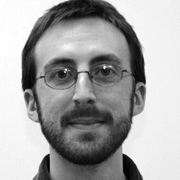Digital Humanities Forum 2015
Peripheries, barriers, hierarchies: rethinking access, inclusivity, and infrastructure in global DH practice
September 25 & 26, 2015
University of Kansas
Call for proposals
Digital Humanities engages in many alternative scholarly forms and practices, and thus positions itself as a channel for exploring and challenging how social and institutional constructs shape traditional and digital academic discourses. Yet DH itself contains many non-neutral practices and is far from barrier-free. Digital Humanities practices, tools, infrastructures, and methodologies often embed a variety of assumptions that shape what kind of scholarship gets made, studied, and communicated; how it is represented to the world; and who can participate in that making and communication. A truly accessible DH goes beyond technical standards and provides people and communities of different abilities, genders, sexual orientations, languages and cultures–and of varying levels of access to technology and infrastructure–the capacity to shape and pursue scholarship that addresses their own interests and needs.
In a global context, the expansion of DH practices around the world and beyond the academy can reveal the ways in which dominant, hegemonic practices within the field tend to reinforce the very inequalities DH attempts to correct through its embrace of accessibility and knowledge production. Thus, specific practices in Global DH can call attention to the explicit and implicit contradictions in broader DH practices.
University of Kansas’ 2015 Digital Humanities Forum will take a critical approach to exploring peripheries, barriers and hierarchies of digital humanities practice in a global context, identifying those assumptions, and advocating and showcasing alternative practices to advance the field. Participants will critically engage these issues by exploring themes such as inclusivity, accessibility, global perspectives, decolonization, and democratization as they relate to digital humanities practice and infrastructure.
The Forum will take place on Saturday, September 26, following a full day of (gratis) Digital Humanities workshops on Friday, September 25.
They seek projects, research results, or critical/theoretical approaches to topics such as (but not limited to) the following:
- How do embedded assumptions of DH practice shape what gets made, studied, and communicated;
- The limitations of digital structures and infrastructures such as code/databases/ operating systems/interfaces/standards to represent or highlight cultural/gender/linguistic specificities, and efforts to get past these limitations;
- Inclusion and exclusion in digital collections: archival silences, massive digital libraries, digital recovery projects;
- “Accessible DH” that includes different abilities, languages, genders and sexual orientations, socio-economic conditions, and access to technical knowledge and infrastructure;
- Case studies of projects focusing on accessibility and actively focusing on openness;
- Case studies of indigenous, gendered, transnational, or “Global South” DH;
- The concept and practice of minimal computing (sustainable computing done under some set of significant constraints of hardware, software, education, network capacity, power, or other factors);
- Projects exploring data in languages other than English or working towards multilingual presentation;
- Critical making, hacking, tinkering, and non-textual modes of knowledge production;
- “Soft infrastructures” such as ideas of ownership, copyright, and intellectual property and their impact on global DH practice.
DH Forum best student paper award: Graduate students are encouraged to submit abstracts of papers or poster presentations. One student presentation will be selected for an award based on the quality, originality, clarity of the written abstract, along with its alignment with the DH Forum theme and expected future impact. The awardee will be presented with a check for $400 and award certificate at the conference. Students should identify themselves as such at the time of abstract submission to be considered for the award. For a paper to be eligible, at least fifty percent of the research reported in the paper must be performed by one or more student authors, and the student must be the primary presenter of the paper at the conference.
Please submit abstracts of 500 words maximum in PDF format to idrh@ku.edu by June 1

 Monday, June 8
Monday, June 8 Tuesday, June 9
Tuesday, June 9




